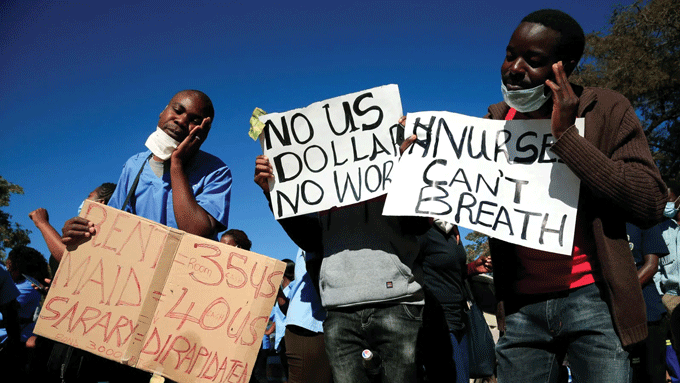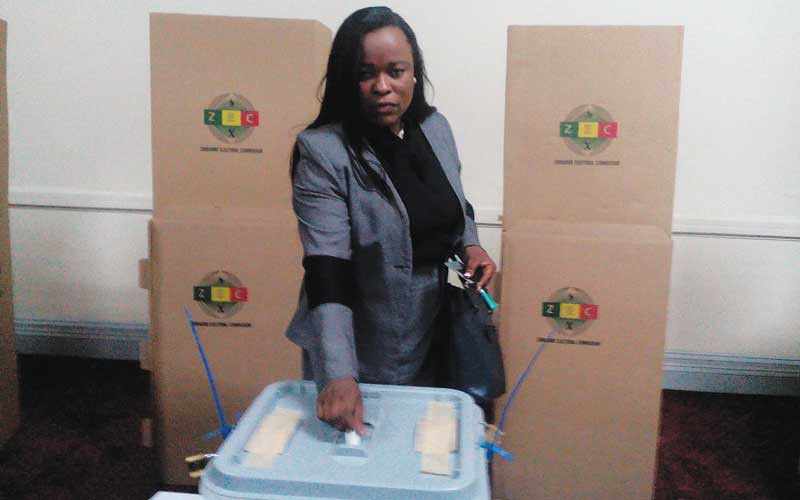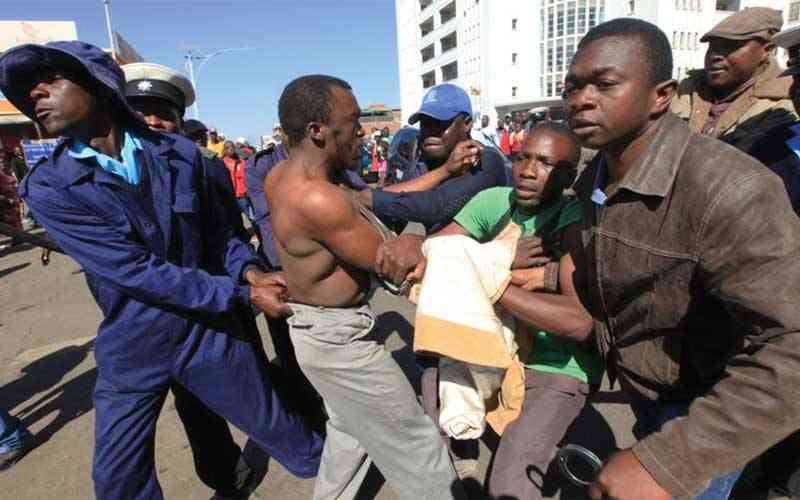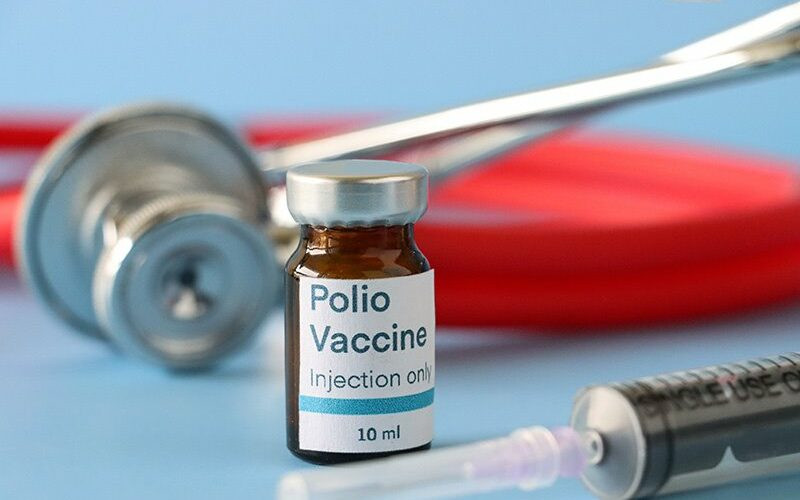
AS we celebrate Workers’ Day, we must remember the difficulties and sacrifices made by workers in moving the economy forward. Our country is what it is because of workers. The worker is the engine of the economy.
Without workers, we would not have an economy to talk about, families would not survive and government would be broke.
Some workers, for example, in construction industries, transport, manufacturing and energy sectors are daily exposed to work-related accidents.
Others are maimed, lose their lives daily in the process of moving the economy forward. We need to celebrate and remember these heroes who perish everyday at the workplace.
Work-related accidents can be reduced by following safety precautions and ensuring that workers are given proper training and protective clothing.
The worker, therefore, deserves better salaries and working conditions. We urge government to increase salaries of civil servants in the face of inflation and weakening Zimbabwean dollar.
Salaries are no longer enough to sustain families because of price increases of basic commodities. Those in the private sector also deserve better salaries. Government can assist in this endeavour by creating a conducive environment for business to thrive.
Governments worldwide thrive on the sweat of workers and, therefore, need to respect workers.
- Chamisa under fire over US$120K donation
- Mavhunga puts DeMbare into Chibuku quarterfinals
- Pension funds bet on Cabora Bassa oilfields
- Councils defy govt fire tender directive
Keep Reading
The government should take advantage of May 1 to take stock of what needs to be done to cushion workers.
When National Patriotic Front (NPF) leader Tendai Peter Munyanduri is voted as president in 2023, workers will “bath with milk”. Workers will be happy again. Zimbabwe will flourish.
We promise better salaries as we intend to make Zimbabwe a top income country by 2028. NFP will reduce work-related accidents to almost zero.
Right now, judges retire at the age of 75 while other workers retire at 60 or 65 years! This is discrimination based on profession which must be condemned. We urge workers to unite and demand their rights.- NFP leader Tendai Peter Munyanduri
Zim journalists still face many bottlenecks AS the Zimbabwe Union of Journalists (ZUJ) joins the rest of the world in commemorating World Press Freedom Day, it is of paramount importance to reflect on Press freedom and the current challenges being faced by journalists in the country.Journalism is a public good that plays a central role in initiating and stimulating public debates for the betterment of society.
The public depends on journalists to inform and educate them on various aspects of life for them to make informed decisions in their day-to-day lives.
For example, in the unprecedented crisis caused by the COVID-19 pandemic, the media was — and still is — more than ever an essential and emergency service critical in response to the pandemic. They offered an unparalled service in providing the citizenry with verified and fact checked information on all aspects of COVID-19.
Yet the nature of the media profession itself makes journalists subject to heightened risks and targeting more than others exercising the same right of freedom of expression and opinion.
Journalists face constant challenges in accessing information from public bodies. They are battling secretive governments, restricted movement, threats, intimidation, beatings, death, misinformation and sources who are too scared to speak.
During the past five months, ZUJ has recorded at least three incidents of rights violations of journalists from both private and public media. These included arrests, assaults, threats and intimidation. Perpetrators comprised the police and members of political parties. This is unacceptable.
ZUJ, therefore, uses this year’s World Press Freedom Day commemorations, whose theme is Journalism under digital siege to insist that journalists and the media should be allowed to operate in social and professional conditions that respect the need for media freedom.
This means removal or reformation of laws inhibiting media activity, in compliance with provisions of the Constitution, and defending journalists against political pressure and interference in their work, among others.
Also the media industry has suffered greatly from little investment. This has led to a poorly paid workforce and massive retrenchments in newsrooms.
These developments have fostered a breeding ground for all sorts of malpractices, compromising ethical and professional standards and the safety of journalists.
So until Zimbabwe purges policies and practices that violate the principle of media freedom and free journalistic enterprise as espoused in our Constitution, including refocusing on kick-starting the economy so that it can start working normally again, the media environment will remain compromised, affecting the safety, well-being and security of journalists.- Zimbabwe Union of Journalists
Trial of Lupane board employees raises stinkTHE pending court case involving three senior staff employed by the Lupane Local Board kindles in me a lot of keen interest. Yes, I have queried the delay in the resumption of the trial de novo consequent upon the appeal by defence counsels of the three employees.
My question is: Who exactly is the complainant since the accused employees are the most senior, hence, they arrogated to themselves the privilege of being procurement committee members?
Where was the board chairperson and other caretakers when all the shebang was unfolding? I am not saying they committed an offence. In my opinion, therefore, the chairperson Monica Ngwenya and her fellow caretakers were and are supposed to be the complainant by virtue of the fact that they are the employers of the three, and additionally because as caretakers they represent the residents.
And yet throughout the protracted trial, the chairperson and her colleagues did not appear in court in any capacity. Why, when they should be principal complainants? In fact, one of them should have chaired the finance and development committee and the entire tendering process. Otherwise, there would have been no tender awarded to anyone in their absence.
Therefore, the evidence of the caretaker or caretakers was very crucial in the case and not the evidence by the Procurement Regulatory Authority of Zimbabwe (Praz) official, which to me was his personal take on the case, also because tenders are in-house affairs. They are not presided over by Praz. The Praz official’s evidence was “incidental” if not wholly abstract. Caretakers like councillors are there to ensure accountability and transparency in local governance because they represent the residents.
There is a trite law which says that a person can be charged with obstructing the course of justice if they deliberately refuse to co-operate with law enforcers.
Please let me be understood clearly: I am not for one moment implying that anyone is guilty or not guilty. I am not qualified: I am merely making public comment and as one eminent Justice put it: “The path of criticism is a public way and the wrong-headed are permitted to err therein, provided that members of the public abstain from imputing improper motives to those taking part in the administration of justice, and are genuinely exercising a right of criticism and not acting in malice or not attempting to impair the administration of justice, they are immune.”
This letter provides an insight into the case, and the evidence of the chairperson is the missing link. I don’t understand the logic of having a Praz official and living out a key witness.- Martin Stobart











